April 16, 2025 | 13:03 GMT +7
April 16, 2025 | 13:03 GMT +7
Hotline: 0913.378.918
April 16, 2025 | 13:03 GMT +7
Hotline: 0913.378.918
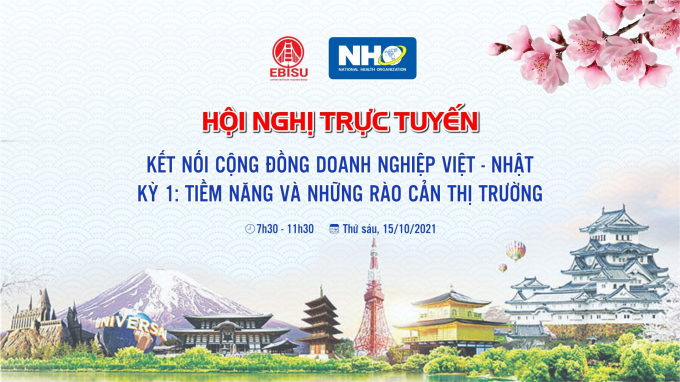
On October 15th, the conference "Connecting the Vietnamese - Japanese business community: Potential and market barriers" took place with the goal to help Vietnamese businesses successfully access the export market.
The conference received the participation of representatives from EBISU organization - Connection bridge for Japan - Vietnam production and bilateral trade, the NHONHO Technology Co., Ltd (NHO Certification Organization) which specializes in providing assessment, certification, testing, inspection and training services; Vietnam Business Association in Japan along with representatives of agro-product and food production companies and cooperatives in Vietnam.
Speaking at the event, Mr. Hoang Ba Nghi, General Director of NHO, said that the Covid-19 pandemic is causing major impacts on the economic and social situation. Many businesses have been significantly affected as production and export activities are interrupted. The conference was held which derived from the need to share information, obstacles and barriers concerning the export market as well as give out plans to ensure food safety for exportation.
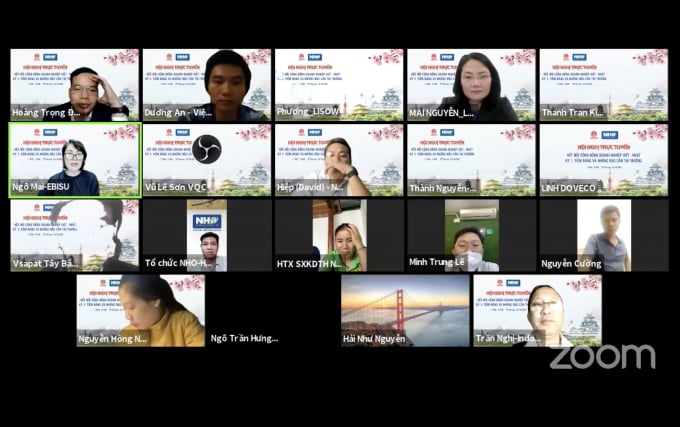
The online conference attracted more than 120 representatives from EBISU, NHO, businesses and cooperatives.
Japan is Vietnam's 6th largest export market with an export turnover in the first 6 months of 2021 reaching USD 10.06 billion (up 8.2% compared to 2020) despite Covid-19’s complicated situation. Vietnamese agro-products and foods are being accepted by this market at an increasing rate. The retail market indicates a promising increase in the export value of Vietnamese goods (USD 1 billion by 2025).
However, along with great export potential, Japan is also one of the demanding markets with high requirements for imported products, especially for agricultural products and food.
The internal capacity of Vietnamese enterprises and manufacturers still poses limited as the quality of raw materials is not synchronized in terms of standards, quality, and production procedures. Technological aspects receive little attention, management capacity is still weak, products lack competitivity, and knowledge and information on import and export legislation are still insufficient.
“In the past, product quality control used the method of random sampling and removed after inspection, which contains high risks, now agro-food products are checked right from the input stage, from raw materials to production process, from farm to table. With this principle, the output products are guaranteed to be of stable quality to serve not only domestic consumption demand but also exports to demanding markets, including Japan," said Mr. Nghi.
As one of the successful enterprises in the field of agro-product and food exporting, Mr. Ta Quoc Su, Chairman of VietPepper Company, shared that Vietnam's export is an open field favored with many policies and agreements, bilateral and multilateral trade agreements. This can serve as proof that tariff and technical barriers have comparatively been overcome.
Another problem is that many enterprises remain in a difficult situation concerning their internal resources, human factors or products when participating in the export field. Mr. Su recommended that businesses should learn about the procedures and problems that they will encounter when exporting goods to foreign countries. Another suggestion is to seek information and outline the requirements that need to be fulfilled from the import market and especially from customers. Businesses can improve the existing potential such as investing in infrastructure, training personnel and understanding the culture of the export market that they aim to, prepare conditions to enter the market. It is necessary to carefully calculate which agreement brings the greatest advantages to apply in actual exportation.
Translated by Samuel Pham
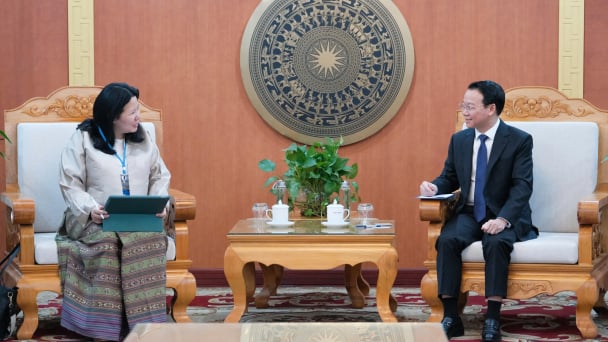
(VAN) On April 15, Minister of Agriculture and Environment Do Duc Duy hosted Ms. Dechen Tsering, Regional Director of the United Nations Environment Programme (UNEP) Asia-Pacific.
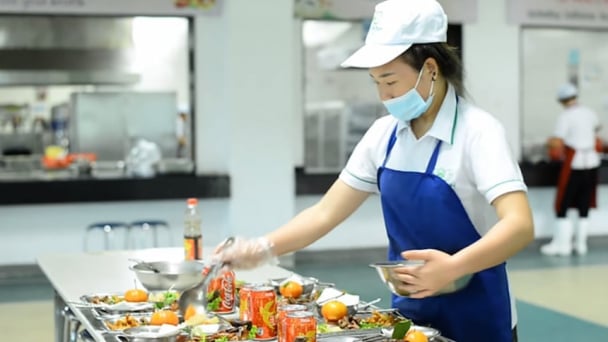
(VAN) The Ministry of Agriculture and Environment and the Ministry of Industry and Trade, in coordination with relevant ministries and agencies, have established five inter-sectoral inspection teams to conduct inspections in 10 provinces and cities.
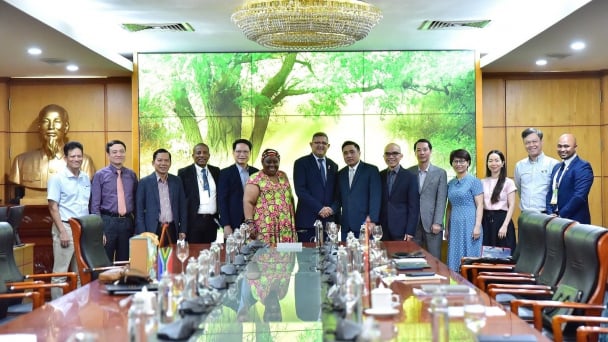
(VAN) South Africa commits to working with Vietnam to conserve biodiversity, promote a just energy transition, manage marine areas, and develop sustainable aquaculture.
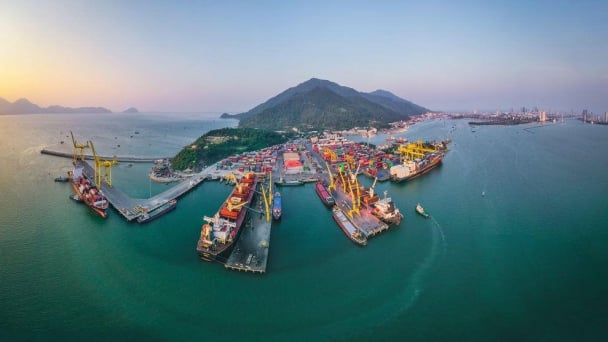
(VAN) Vietnam Agency of Sea and Islands has proposed that the MAE organize the Vietnam Sustainable Maritime Economy Development Forum in 2025.
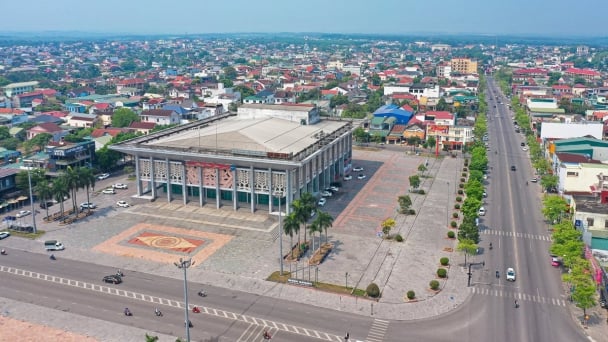
(VAN) Deputy Prime Minister Nguyen Hoa Binh has just signed a decision approving the Project to organize administrative units at all levels and build a two-tier local government structure.
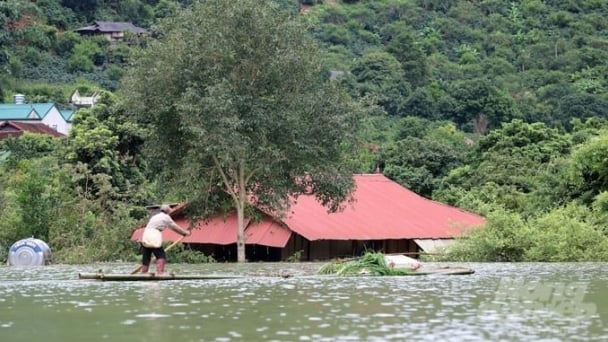
(VAN) This is an important goal that the UN-Habitat organization of the United Nations is implementing in Son La, aiming to respond to climate change and reduce disaster risks.
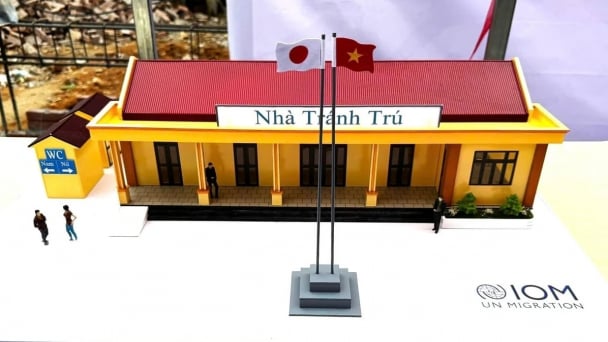
(VAN) In the context of increasingly complex climate change, the International Organization for Migration (IOM) is committed to supporting Vietnam in developing safe and sustainable migration models.